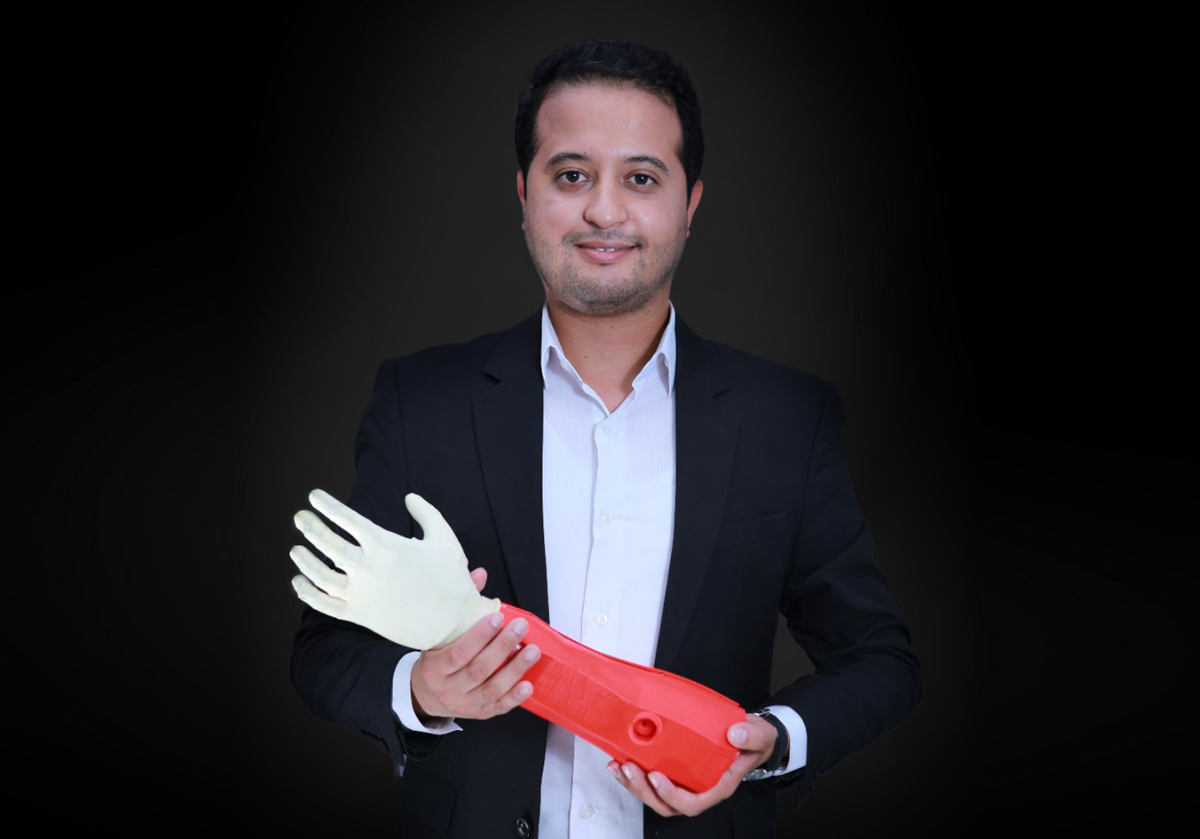
Mohamed Is Developing Affordable 3D Printed Solar-Powered Bionic Hands For Amputees In Africa
Navigating life without limbs can be very difficult for obvious reasons. This was the harsh reality for Mohamed Dhaouafi’s friend’s cousin who had been born without upper limbs and couldn’t afford prosthetics. This reality was the inspiration behind Mohamed’s research on limb loss around the world, which then birthed his company, CURE. He is a 2017 Tony Elumelu Foundation Alumna from Tunisia.
The impact CURE has on the everyday lives of amputees is tremendous. Its innovation ensures that these amputees can function adequately despite living in a world that is not built to accommodate them.
For Mohamed, the goal is simple, yet important – ensure that these members of our society can live their lives to the fullest despite this physical challenge. He has established two main programmes to help him achieve this goal: the development of personalised, 3D printed bionic hands and the provision of disruptive physical rehabilitation solutions for amputees who mostly live in rural areas and have limited resources using virtual reality.
He is slowly filling a gap that has existed in our world since the beginning of time. The World Health Organization estimates that there are 30 million people with amputated limbs in poor countries, and only 5% of them have access to prosthetics. There is also the challenge that comes with the cost of fitting children with high quality prosthetic devices which in turn contributes to the stigma and mobility difficulties that keeps them out of school. Mohamed’s innovation will be directly addressing three crucial social problems – poverty, access to education and access to health care.
Even with a major focus on affordability, Mohamed is not compromising on quality. Cure’s prototype is equipped with sensors that allow users to operate the hand by flexing or relaxing the muscles in their residual limb. Thy are also developing algorithms to help the arm recognize the body’s electrical signals more accurately, which will minimize reliance on an orthopaedists for adjustments.
Despite the many administrative, legal, financial, especially in the medical and hardware sector, Mohamed is will be launching his latest innovation in the coming months, as his team has just concluded a successful product testing of the bionic arms with five Tunisian youths and will soon initiate trials at three government hospitals.
